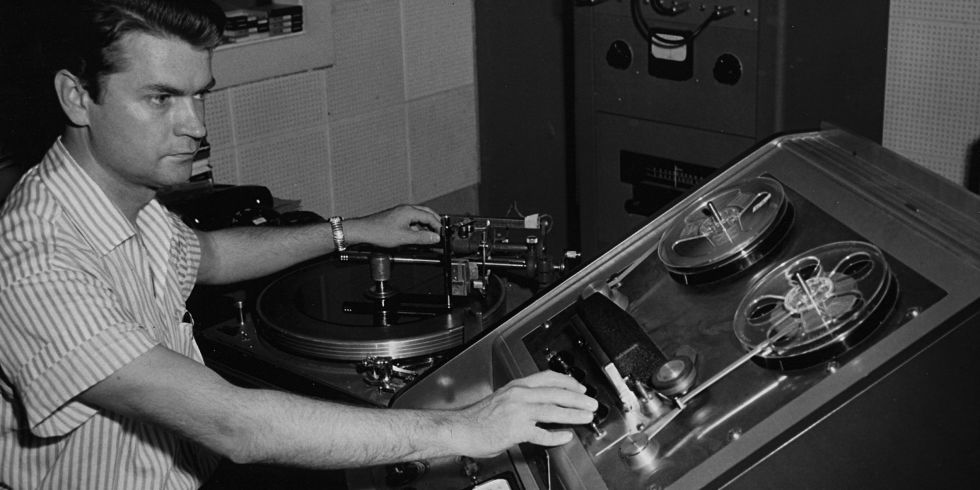Interesting article in Popular Mechanics on Sam Phillips, Sun Studio and the advent of the sound of Rock n' Roll.
Tags
Comments
I love this ( from the article that Sean posted): "In early 195
I love this ( from the article that Sean posted):
"In early 1951, King ( BB) recommended Phillips' services to the Mississippi-based band "Kings of Rhythm," led by teenager Ike Turner. In their haste to fix an unlucky flat tire on a road trip to Memphis, one of their amps fell out of the trunk and onto the pavement. Upon arriving at Phillips' studio, guitarist Willie Kizart plugged in the amp and got a horrible, fuzzy, distorted noise. The speaker cone of the vacuum tube amp seemed to have broken in the fall, or maybe was damaged during a rainstorm that befell the band on their way to the studio. Whatever the case, the amp was shot and the group, crestfallen, feared their shot at recording a song was over before it had even started.
Phillips, however, had a different idea. Running to the diner next door, he grabbed some paper—the legend differs on whether it was brown paper or day-old newspaper—and stuffed it into the amp, giving it a new, unique sound, a muffled saxophone-like bass. For Phillips, this wasn't just a quick fix, but in fact something better: something different. When you listen to the the song widely hailed as rock and roll's first, "Rocket 88", you'll hear exactly what he created. A sound that helped launch a genre.
"Instead of trying to hide that sound," says Jerry Phillips, "he brought it to the forefront." While this may not have been the first instance of fuzz tone or distortion in a song, it was the first commercially successful song with this soon-to-be-iconic manipulation of sound that would go on to define songs, from The Kink's "You Really Got Me", to The Stones "Satisfaction", to The Beastie Boys' "Sabotage".
Phillips' approach was that, "If you are not doing something different, then you are not doing anything at all..."
------------------------------------------------------------------------------------------------
It was his ability to adapt, and to experiment, that opened new sonic doors that were previously unknown, or even unaccepted. Who here would have heard that broken amp, and decided to use the damage their advantage? Most - if not all of us - would have reached for another amp, or told the client, "we can't use this, it needs repaired." Phillips took a different approach, seeking new sounds through sonic experimentation, turning a bad situation into a good one, simply by being creative and open minded. I think that a lot of the other early audio pioneers did this as well. ;)
If you listen to the song it does have a nice typical rock disto
If you listen to the song it does have a nice typical rock distorted fuzz sound to the bassline. What a great story behind how that was achieved.
Makes you want to keep an eye out for all those busted amps you come across at flea markets and garage sales...there may just be a diamond in the rough out there.



There were many places like Sun, that were contributors to the s
There were many places like Sun, that were contributors to the sound of Country and R&B, which led to Rock and Roll... Sun was most certainly one of these studios, as was Chess, Muscle Shoals, United-Western ( now Ocean Way), Goldstar, and many others... the engineers who owned and worked at these studios were people of great intelligence and creativity; pushing the envelope for newer styles and sounds, and even going so far as to actually designing and creating the gear that they needed, because there wasn't the plethora of gear manufacturers that there are today. With the exception of tape machines and microphones, the other necessary peripheral gear was non-existent. If they wanted gain reduction, or echo, or doubling, or even a way to adjust the tonality of a track or song, then they didn't just pick up the phone and order something from Sweetwater ( they couldn't, because those places didn't exist yet)... so, they actually invented and built the devices that did what they wanted - and out of that process came gear that is still highly sought-after today: 1176's, LA2's, Fairchild's, the Echoplex, ADT, Equalization...in many cases, they even built their own consoles.
These guys were true engineers. They weren't just audiophile knob-twisters. ;)